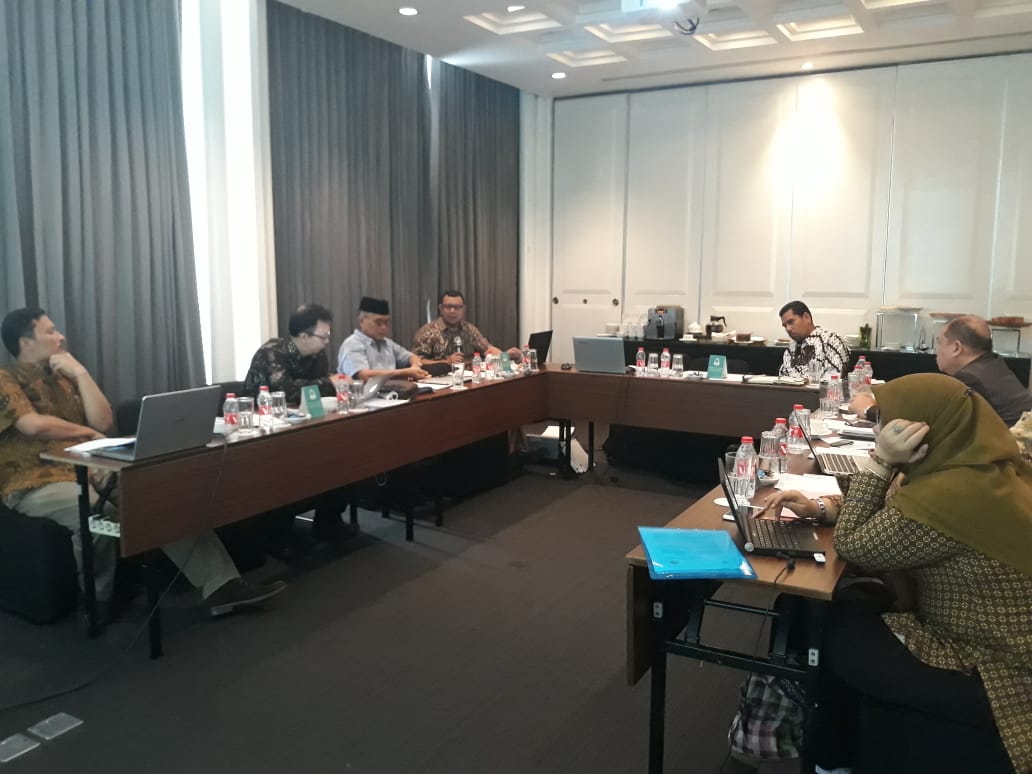
Signs of growing intolerance, radicalism, and violent extremism have become Indonesia's main concerns as it is a setback for a system of democracy which upholds human rights.
As an independent institution, Komnas HAM needs to assess the approach and position which leads to the rise of intolerance as it is a threat to human rights.
For this reason, the Komnas HAM Plenary Session has formed a Team to respond to issues of intolerance, radicalism and violent extremism.
At present, acts of intolerance and radicalism are not only prevalent in Indonesia’s education system, but also permeate within the functions of the state and society.
Komnas HAM argues that this mainly triggered by the manipulation and misuse of social media by individuals who seek to further their political interests.
Studies conducted by the Maarif Institute and Syarif Hidayatulah State University held in 40 schools in five provinces on 2-21 October 2017, show growing concerns of intolerance, radicalism, and violent extremism.
The study reveals that terrorism has infiltrated the education system through intra-school organizations, by use of religious students who seek to disseminate radical propaganda and are inclined to advocate violence and radicalism.
Consequentially, Komnas has HAM received 97 complaints in 2016, 87 complaints in 2015, and 74 complaints regarding alleged violations of the right to freedom of religion and belief.
This is clearly a setback to efforts which seek to create a conducive environment for the effective implementation of human rights in Indonesia.
As such, Komnas HAM is of the opinion that the State should be compelled to address the issue, affording special attention to intolerance, radicalism, and violent extremism in every aspect and component of the Indonesian social structure.
In 2018, Komnas HAM witnessed a series of acts of terrorism that resulted in the death of five police officers and one terrorist inmate. This event unfolded from the 8th to the 10th of May 2018, at the Salemba Branch Detention Centre, and the National Police Mobile Brigade.
The event began was sparked by a riot which escalated to the prisoners taking officers as hostages.
From the 13th to the 14th of May 2018, extremists claimed credit for various suicide bombings in three churches in Surabaya, killing at least 28 people, both on the side of the National Police, perpetrator, and innocent bystanders.
Additionally, terror occurred at Riau Regional Police Headquarters on 16 May 2018, resulting in the death of one police officer and the deaths of five suspected terrorists who tried to attack members of the Indonesian National Police.
Acts of intolerance, radicalism and extreme violence have violated basic human rights. In Article 28G paragraph (1) of the 1945 Constitution it is affirmed that everyone has the right to personal, family, respect, dignity and the right to security and protection from the threat of fear.
The right to security is the constitutional right of every citizen and it is a right that must be fulfilled by the state. This act also contravenes the right to freedom of belief and religion guaranteed in Article 22 of Law Number 39/1999 concerning Human Rights.
In order to address this issue, a discussion was held by presenting speakers consisting of RI Ombudsman Members Ahmad Suaedy, BNPT Prevention Director Brigadier General Hamli and Bareskrim Cyber Criminal Director Brig. Gen. Rachmad Wibowo from the 26th to 27th October 2018
The data and information obtained will be critically assessed in a Position Paper. The draft of this Position Paper will be presented at the Plenary Session which will be held on the 6th and 7th of November 2018.
The Position Paper will later be presented in the momentum of the International Human Rights Day on 10 December 2018 to the President of the Republic of Indonesia.
(MDH/Jeff)
Short link

















